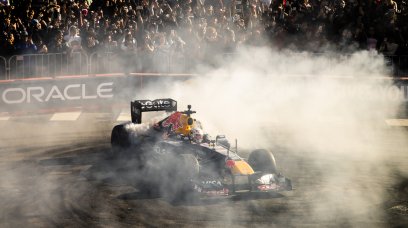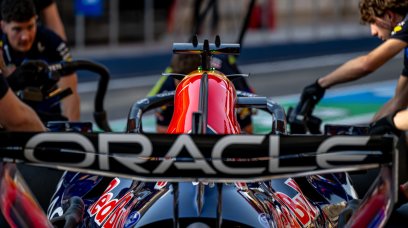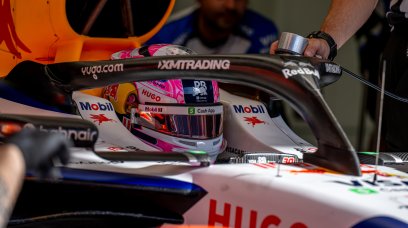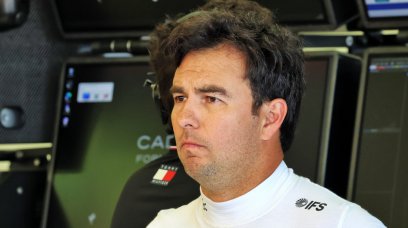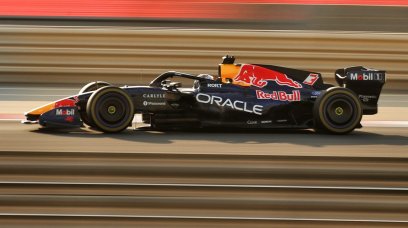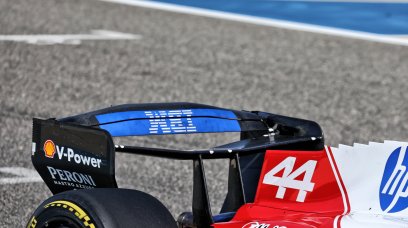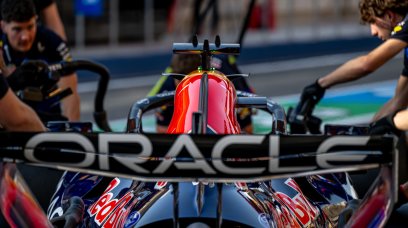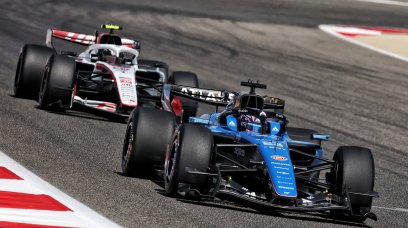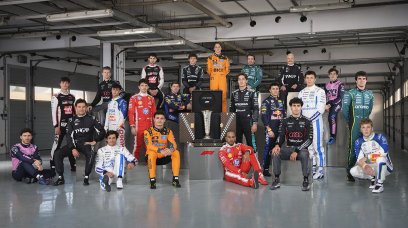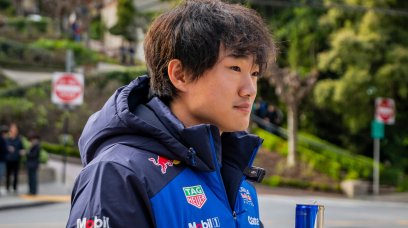Born on 27 April 1943 in Graz, Thursday marks Helmut Marko's 80th birthday, but he is still the lynchpin of Red Bull's racing division. Until the death of founder Dietrich Mateschitz in 2022, he was confidant and right-hand man to the billionaire, tasked with ensuring only the best drivers got into the senior team. In 1967, he received his doctorate in law – hence the Dr prefix – but it was the exploits of fellow Austrian Jochen Rindt which ignited the motorsport bug. Rindt would be killed at Monza in 1970 and become the first, and only, posthumous F1 World Champion. Rindt's death did not deter Marko, who pledged to follow in the Lotus racer's footsteps. The next year, Marko won the Le Mans 24 Hours with Gijs van Lennep and became a fixture on the Grand Prix scene, but in July 1972, in the French Grand Prix at Clermont-Ferrand, Marko would sustain life-changing injuries. A stone flicked up and hit Marko in the left eye, causing him to go permanently blind in that eye as his career came to an end, with a Ferrari pre-contract in his pocket for 1973. "I remember it well, the moment the stone hit my eye, the natural reaction was to close my eye," he recalled to German media. "We had a 12-cylinder [engine] in the back of the car that consumed about 250 litres of fuel at that circuit. I remembered I had that much fuel on board and there were about 20 others driving behind me. "If I lost control, the eventual crash could easily have been fatal – not just for me, but for others. I raised my hand and parked the car along the track. "That race, at Jackie Stewart's insistence, we had a medical car, but the infrastructure was lacking at the time. "I was taken from one hospital to another, but nowhere was there a real doctor. I was only helped in the evening, which was probably one of the reasons why my eye could not be saved. "The pain was unbelievable. I was in the hospital for a long time and received different diagnoses. After the eye was stitched up, I realised I was going to call it a day in motorsport."
Talent scout
Despite the injury, Marko stayed involved in motorsport and turned his hand to being a driver manager, with Gerhard Berger and Karl Wendlinger under his wing, before founding his own junior squad, RSM Marko, competing in today's equivalent of Formula 2. It was in the 1990s that Marko and Mateschitz first came into contact, with Red Bull taking over his team and renaming it as the Red Bull Junior Team, with the latter appointing Marko as advisor to the racing department and to be in charge of the training programme. After Red Bull's entry to F1 in 2005, Marko stepped up to the role he holds to this day, and has been responsible for launching the Grand Prix careers of the likes of Sebastian Vettel, Max Verstappen, Daniel Ricciardo, Pierre Gasly, Carlos Sainz and Alex Albon. Vettel would go on to win 39 Grands Prix for Toro Rosso/Red Bull and four World Championships, while Verstappen is now the man to beat with 37 wins and two titles and counting...
Marko and Verstappen
Following a stunning performance in summer 2014 in Euro Formula 3 at the Norisring, it was clear to Marko where this Dutch 16-year-old needed to be, calling his father, Jos, to say: "I want Max in Formula 1." Moving to sniff out the interest from Mercedes, the carrot of a 2015 Toro Rosso seat was dangled for the teenager, with practice outings in late 2014 used to get Verstappen up to speed. But it was their first meeting which left an impression on Marko. "That was in 2014 in Graz. Normally I speak with a young driver for 20, maybe 30 minutes at most, but with Max the conversation lasted two hours! "His dedication stood out immediately. Fully focused on his racing career, he had a clear goal, Formula 1, and he had no doubt that he would succeed. You need that confidence and for me that was very unusual." Verstappen has carved himself out to be a tough teammate, one that ran Ricciardo out of the team in 2018 and ended the Red Bull careers of Gasly and Albon. However, one teammate actually beat Verstappen: Sainz. Sainz outscored Verstappen 10-9 in qualifying in 2015, with only poor reliability costing the Spanish driver in races, with the 49-18 points haul looking a little more one-sided. But in early 2016, Verstappen was promoted to the senior team and Sainz was left at Toro Rosso. Marko has a plain explanation. "Some people thought we overlooked Carlos Sainz. His development was also very good and the differences between the two were small," he said. "However, despite having less experience, Max was the fastest and that's why we brought him to Red Bull. Carlos was simply unlucky to have Max as a teammate. "Then came that infamous race in Spain. Mercedes did us a favour, because both drivers dropped out. "Then Max had [Kimi] Raikkonen breathing down his neck for 40 laps. It was a sensational race by Max. He became the youngest Grand Prix winner and that was the first omen that we were going to be World Champions together with Max. "It is absolutely no fun to race against Max. He is always on the limit, no matter the conditions, he always has incredible car control. "Just look at the 2016 Brazil GP, in the rain, when the car slid out from under him at 300 kilometres per hour. However, he managed to regain control. "Max can race fast in any car. In terms of character, dedication, confidence and charisma, I would compare him to Ayrton Senna. I see Max driving at this level for at least another decade." Prescient words indeed seeing what Verstappen has gone on to achieve...
Kind of a second father
Verstappen would tell RacingNews365 in an exclusive 2021 interview that "Helmut is like a father to me," when asked about both Marko and team boss Christian Horner. "I have a very good relationship with both of them and with Helmut, he says what he thinks, is always straightforward and I like that. No bullshit stories with him," Verstappen commented. "The rapport with Marko is just very good and so is the one with Christian. Over the years we've obviously been through so much, so it's all good. We get along very well." When asked to judge who was the better driver between his bosses, Verstappen opted for Marko as "he of course made to Formula 1" while the best Horner could manage was Formula 3000. "It's hard to say, but in the end I think Helmut [was better]..." Despite a life-changing injury which could have put him off from motorsport, Marko reinvented himself after his gifted driving career ended, with one of his junior drivers finishing first or second in the World Championship nine times since 2009, with his latest charge in Verstappen set to dominate for the foreseeable future. It's a fitting legacy as he heads into his ninth decade.
Most read
